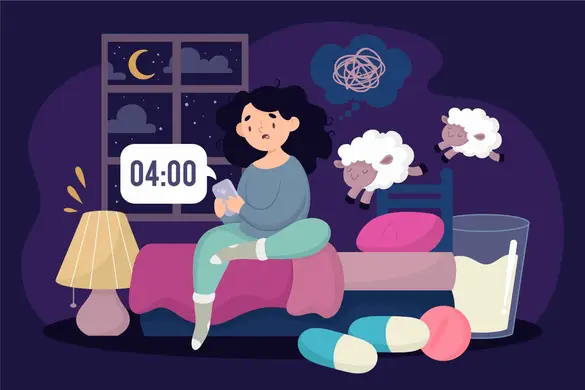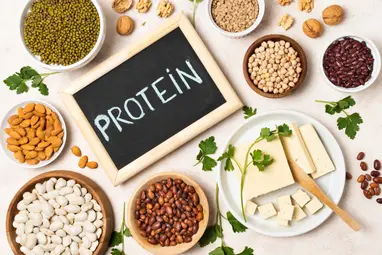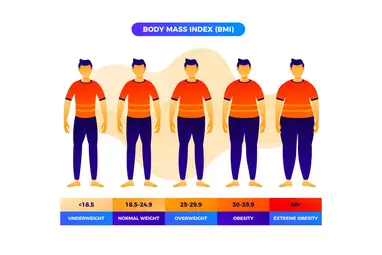Melatonin Deficiency: Common Symptoms & Causes

Melatonin Deficiency: Common Symptoms & Causes
Posted on 22nd May, 2023
Having a hard time sleeping? Feeling anxious? This could be a symptom of melatonin deficiency if you don't know why.
Melatonin deficiency is common in adults, but it is important to address it as soon as possible, since some individuals may experience melatonin deficiency, which may negatively affect their sleep patterns.
So let’s discuss, what is melatonin and how it affects our bodies. We will also discuss various symptoms that can arise, from Melatonin deficiency affecting both our physical and mental health.
What is melatonin and why do we need it?
Melatonin is often discussed in relation to sleep cycles and the effect it has on individuals.
Having said that, melatonin is a sleep hormone that helps in regulating our sleep cycle. Its origin center is the pineal gland in our brain from where it is produced and released into our blood streams to ignite sleep.
Melatonin hormone is regulated at set timings of the day for adults as well as children, saying which means our pineal gland secrets high levels of the melatonin hormone at night when it's dark and minimum amounts during the day time.
Now, the pineal gland is triggered by the darkness and in turn releases the melatonin, while in the daytime or presence of light, the pineal gland ceases to release the melatonin hormone. Hence, resulting in controlling the sleep-wake cycle.
Signs & Common Symptoms of Melatonin Deficiency
Melatonin deficiency can manifest in various ways, impacting both physical and mental health. Some common symptoms associated with melatonin deficiency include:
Daytime sleepiness & tiredness: People with low melatonin levels often feel sleepy and tired during the daytime and have to struggle to stay awake and alert during the day, even if they have a full night's sleep.
This can lead to decreased productivity, difficulty concentrating, and overall fatigue.
Loss of antioxidants: Melatonin is not only involved in regulating sleep but also acts as a potent antioxidant, protecting our cells from oxidative damage, hence melatonin deficiency can result in a loss of antioxidants in the body, making it more vulnerable to harmful free radicals and increasing the risk of various diseases.
Dark circles under the eye & wrinkles: Melatonin helps to maintain, good sleep, elasticity of our skin, and overall health. Insufficient levels of melatonin may lead to the breakdown of collagen and elastin, resulting in the appearance of dark circles, wrinkles, and premature aging.
Acceleration of aging: Since melatonin is involved in regulating various physiological functions, its deficiency can impact overall health and vitality, potentially leading to accelerated aging.
Circadian rhythm disruption: Melatonin deficiency can disrupt the circadian rhythm, the internal clock that regulates our sleep-wake cycle. When melatonin levels are imbalanced, our sleep patterns can become irregular, making it challenging to fall asleep and stay asleep throughout the night.
Restlessness: The hormone plays a vital role in various physiological processes, and its deficiency can have far-reaching effects on our overall health and well-being. In case of not being able to complete the 7-8 hours of sleep, one will definitely become restless without proper sleep.
Metabolic disorders: Melatonin deficiency has been linked to metabolic disorders such as obesity, diabetes, and dyslipidemia. Imbalances in melatonin levels can affect metabolic processes, including energy regulation, glucose metabolism, and lipid metabolism, potentially leading to the development of metabolic disorders.
Nocturnal awakening: Individuals with melatonin deficiency may experience frequent nocturnal awakenings, disrupting the continuity of their sleep and leading to fragmented rest.
Insomnia: Insomnia is characterized by difficulty in falling asleep and this can be a result of melatonin deficiency. Insufficient melatonin levels may disrupt the onset and maintenance of sleep, making it challenging for individuals to achieve restful and adequate sleep.
Depression & Anxiety: Melatonin deficiency has been associated with mental health conditions such as depression, anxiety, and chronic exhaustion. Balancing melatonin levels may help alleviate some of these symptoms.
Weight gain: Melatonin deficiency has been linked to weight gain and difficulties in weight management. Imbalances in melatonin levels can disrupt metabolic processes, leading to changes in appetite, increased food cravings, and alterations in fat metabolism.
Chronic Exhaustion: Chronic fatigue and exhaustion can be common in individuals with melatonin deficiency. The disruption of the sleep-wake cycle and the inability to achieve restful sleep can result in persistent feelings of tiredness and low energy levels.
Hypertension: Melatonin plays a role in regulating blood pressure. Insufficient melatonin levels may contribute to the development or exacerbation of hypertension (high blood pressure).
How to regulate melatonin levels?
If you have any of these symptoms, don't worry about the solution, as there are ways to regulate melatonin levels and improve sleep quality, read on to know about the following strategies:
Melatonin Supplementation:
Although our body is supposed to make melatonin and realize it to induce sleep, taking melatonin supplements will work the same to regulate melatonin levels.
There are various Melatonin supplements available over-the-counter that can restore the balance of the hormone in the body and help you fall asleep faster.
Lifestyle changes:
In addition to supplementation, there are lifestyle changes that can promote healthy melatonin production.
Maintaining a consistent sleep schedule, eating melatonin-rich food, creating a sleep-friendly environment, limiting exposure to bright lights and electronic devices before bedtime, and practicing relaxation techniques can all support the natural production of melatonin.
Conclusion
In conclusion, melatonin deficiency can have a significant impact on our sleep and overall health. Recognizing the common symptoms of melatonin deficiency is essential for taking appropriate steps to address the issue.
Whether through supplementation or lifestyle modifications, restoring melatonin balance can contribute to improved sleep quality and overall well-being.

Health articles from our experts

A Comprehensive Guide On How To Gain Weight Quickly

Muscle-Building Routine and Supplements for Maximum Gains

A Guide with Simple Tips To Follow For Weight Loss

Top 10 Foods That Are High in Protein

5 Best Whey Protein Powders in India

Understanding BMI: The Key to Weight-Health Connection

List of Top Whey Proteins for Muscle Gain

Top Vitamins for a Healthy Immune System

Finding Out the Best Daily Wellness Supplements






